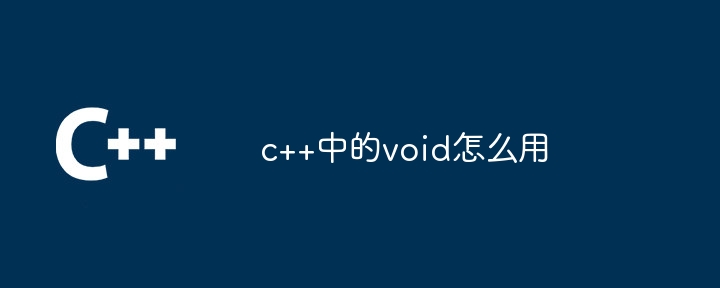C 中的 void 类型是一种特殊数据类型,表示函数不返回任何值。其主要用途包括:声明不返回任何值的函数。作为函数参数,表示函数不需要任何输入。作为指针类型,表示指针不指向任何特定的对象。

C 中的 void 类型
void 类型是什么?
void 是 C 中的一种特殊数据类型,表示函数不返回任何值。
void 的用途
void 类型主要用于以下场景:
void print_hello() {
std::cout << "Hello, world!" << std::endl;
}void swap(int& a, int& b) {
int temp = a;
a = b;
b = temp;
}void* ptr = nullptr;
void 函数与返回类型为 int 的函数的区别
void 函数与返回类型为 int 的函数的主要区别在于:
示例
以下示例演示了 void 类型的使用:
void print_number(int n) {
std::cout << "The number is: " << n << std::endl;
}
int main() {
print_number(42);
return 0;
}输出:
<code>The number is: 42</code>
在这个示例中,print_number 函数声明为 void 类型,表示它不返回任何值。但是,它可以接受一个整数参数并打印该整数。
以上是c++中的void怎么用的详细内容。更多信息请关注PHP中文网其他相关文章!




